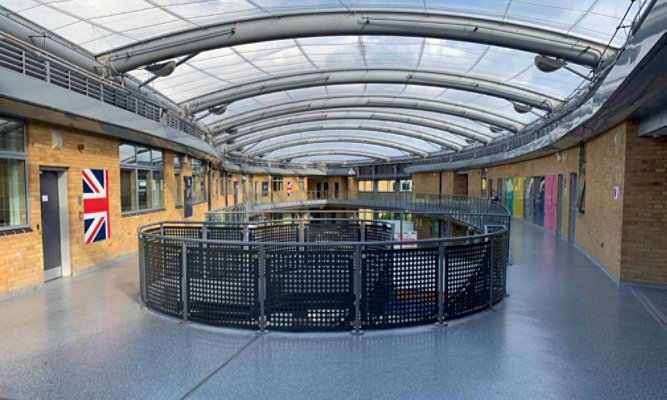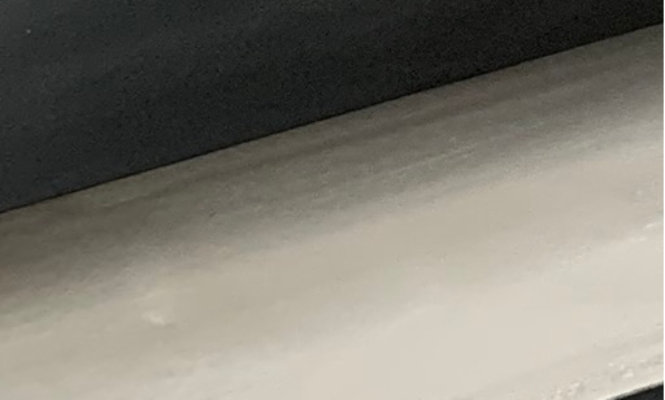
Floor and Drain Requirements in Food Manufacturing and Processing
Drainage and flooring systems contribute significantly to the operation of any processing or manufacturing facility in the food and beverage industry. They should be designed to meet industry hygiene and sanitation requirements as well as promote a safe working environment for employees.
Choosing the right floor coating as well as installing an efficient drainage system is key to preventing food contamination, reducing the risk of slip and fall injuries, and extending the service life of the facility.
Don’t skip these important and commonly overlooked aspects of food and beverage facility design.
8 Floor and Drain Requirements for the Food Industry
The floors of food manufacturing and processing facilities must meet several requirements to create a safe, hygienic and sanitary workspace. As you consider what flooring materials and drainage system to install, ensure they satisfy the following criteria.
1. Easy to Clean and Sanitise
Food and beverage manufacturing plants, commercial kitchens and other facilities in the food industry must have flooring that is easy to clean and sanitise. The floor system should be seamless and designed to withstand aggressive cleaning products, regular washdowns and the temperatures required for hot water or steam cleaning—all while providing advanced slip protection in wet conditions.
2. Antimicrobial
Floors can be a breeding ground for harmful bacteria and pathogens. To maintain proper hygiene, meet industry safety standards and reduce the risk of contamination, food and beverage processing facilities must install antimicrobial flooring. This type of floor system prevents the growth of microorganisms and promotes a sanitary food manufacturing environment.
3. Proper Drainage
Drains are necessary for removing water, chemicals and other liquids from the floor surface. However, poor, ineffective drainage systems can harbour and even promote the growth of bacteria, viruses, mildew, mould, fungi or pathogens. Therefore, high-quality, well-positioned and properly installed drainage systems are an essential part of a clean, sanitary and safe food processing and manufacturing facility floor.
The drainage system must be designed to connect seamlessly with the surrounding floor. Additionally, the appropriate sealant must be used to minimise the risk of cracks forming where the floor and drain intersect. Ideally, the flooring system should also be sloped toward the drain to prevent puddling, increase cleanliness and encourage adequate flow.
4. Seamless and Impermeable
A seamless flooring system makes it easy to clean and sanitise the floor surface. Without cracks, crevices, gaps or joints, bacteria and viruses have no hideaway places to gather and grow, ensuring that the food or beverage facility can maintain meticulous hygienic standards.
Impermeability is also a requirement. Non-porous, waterproof, moisture resistant floors are more sanitary and last longer than other flooring options.
5. Anti-Slip
Slips and falls are extremely common injuries in food manufacturing and processing plants. To promote a safe working environment for employees, the flooring system should provide a degree of slip resistance. In addition to other preventative measures, a non-slip flooring solution can help reduce the risk of accidents.
In general, a higher degree of anti-slip is achieved with a rougher, more textured surface, which can make it more difficult to sanitise. Food and beverage facilities must decide the appropriate degree of slip resistance and design a cleaning regime that is effective on the textured floor.
6. Resistance to Chemicals, Impacts, Abrasions and Thermal Shocks
The floor finishes in food and beverage facilities must be able to handle tough conditions on a day-to-day basis without needing to be repaired or replaced.
High chemical resistance is important, especially in the food and beverage industry, where floors are constantly exposed to spilled foods, liquids, acids, greases, oils and other contaminants as well as aggressive cleaning agents. Floors that are not able to cope with conditions in a Food and Beverage facility will degrade quickly after exposure and may even create holes where bacteria can hide and grow.
Food and beverage industry floors should also have superior impact and abrasion resistance. Forklifts, foot traffic, dropped objects, vibrating machines and more can scratch and damage the floor unless it is suitably protected with a strong floor coating.
Additionally, these floors must be resistant to thermal shocks. When hot grease is spilled on the floor surface or steam is used to clean the floor, the flooring system should be able to handle extreme and sudden temperature changes without cracking.
7. Durability and Longevity
Durable floors can withstand the daily abuse of the food manufacturing and production industry without deteriorating, cracking, lifting or losing their integrity. Stronger, thicker floors also have a longer life expectancy and therefore extend the working service life of the entire flooring system.
8. Sustainability
During construction and installation, many floors emit a certain volume of volatile organic compounds (VOCs)—some more than others. Flooring made from materials that meet low VOC emission standards is preferred because it contributes to cleaner air, which leads to improved conditions for food production and manufacturing as well as a safer environment for employees.
The Best Flooring for Food Manufacturing and Processing Facilities
At Sherwin-Williams, we provide the best flooring for food and beverage facilities.
Our resin floor products are extremely durable and provide excellent resistance to chemical attacks, thermal shocks, abrasions and impacts. Spilled foods, beverages, water, oils, greases, acids or blood will not damage the impermeable resin floor surface. And thanks to our products ability to withstand thermal shocks as well as its waterproof properties, you can use hot water or steam to clean and sanitise the floor without the risk of damage.
To promote a safe workspace environment for food manufacturing and processing employees, Sherwin-Williams resin flooring systems are available in varying levels of slip resistance in both wet and dry conditions as needed.
Hygiene is of the utmost importance in the food and beverage industry. In response, we have formulated our FasTop™ products with antimicrobial properties that meet strict sanitation standards.
If you are constructing or renovating a food manufacturing or processing facility, install Sherwin-Williams high performance resin flooring to meet all the floor and drain requirements of the food and beverage industry.
Contact Sherwin-Williams to Find Industry-Leading Flooring Systems for the Food Industry
Sherwin-Williams offers a range of flooring systems that is specifically designed for the food manufacturing, food processing and food service industries. Our line of high performance resin flooring offers superior resistance to moisture, chemicals, impacts and abrasions. With our durable, easy-to-clean and long-lasting food and beverage flooring solutions, you can extend the lifespan of your manufacturing or processing plant floors and experience cost savings for years to come.
Contact a Sherwin-Williams representative today to learn more about our food-safe resin flooring solutions for the food and beverage industry.
Discover More
Industry Expertise and Innovation
See how we help customers find customised solutions for their project and application challenges.
Resin Flooring Resources
Explore system documentation, webinars, and answers to application challenges.
LEARN MOREProduct Lookup
Find out more about our innovative coatings for a variety of industries.
FIND A SYSTEM



